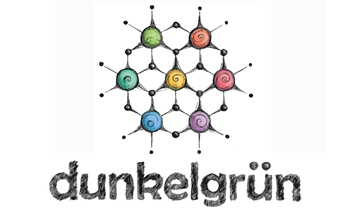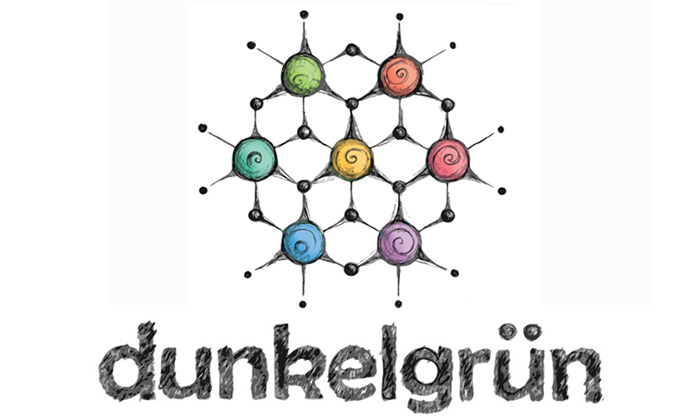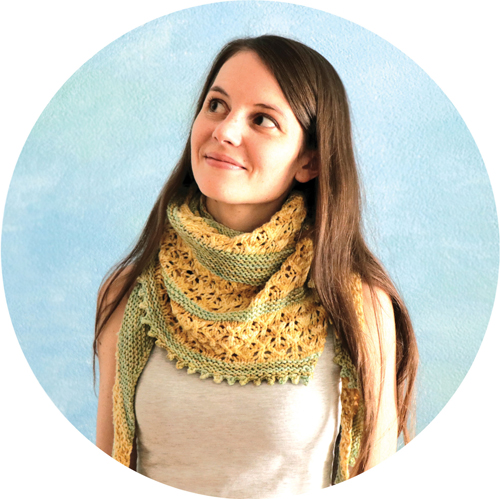This episode brings you some updates from the knitting front, a cute baby knit, some spinning and some natural dyeing with madder. All in wonderful summer colors!
Finished Project
Exploration Station
- Pattern: Exploration Station by Steven West
- Yarn: Merino superwash single yarn (400 m / 100 g) dyed by myself with onion skins (yellow), indigo (blue) and walnut (light and dark brown)
- Needles US 6 – 4.0 mm
Knitting in Progress
Sushi Roll Socks
- Pattern: Basic stockinette socks. Top down, 2×2 ribbed cuff, slip stitch heel flap, rounded heel turn and gusset.
- Yarn: Sock blank “Sushi roll” from easyknits.co.uk (colorway: reversebow)
- Needles: 2.5 mm (US 1 ½) Lykke circular needles (magic loop knitting)
Baby Romper and Cardigan
- Pattern: Spring into Summer, Rompers and Jacket by OGE Knitwear Designs
- Yarn: dunkelgrün organic merino dk self-dyed specifically for this project
- Needles: 4.00 mm (US 6) KnitPro Naturals
- Project bag (blue moons on grey fabric) by Raquel Francia
Improvised Colorwork Sweater
- Pattern: Improvising a bottom up sweater with a “fading” colorwork section and a drop shoulder construction
- Yarn: Lana Rara Rare Swiss Wool – a Sport weight woolen yarn from endangered Swiss sheep breeds (2/3): Saaser Mutten, Spiegelschaf, Bündner Oberländerschaf, Engadinerschaf. Mixed with mulesing free merino wool (1/3). Colors: natural (grey) and rauchblau (blue).
- Needles: 4.50 mm (US 7) Lykke Needles
- Project bag out of indigo printed fabric by LAMIprojects
Spinning
I am spinning 100% Blue Faced Leicester (BFL) in a natural color on my Ashford traditional spinning wheel. My goal is to achieve a DK to worsted weight in order to knit the Telja sweater by Jennifer Steingass out of the yarn.
Dyeing
The skeins I show in this episode were naturally dyed with madder.
I used 25 g of madder roots (in small pieces) and soaked them over night in water. The next day I heated them for about 1h and then filtered the madder pieces through a piece of fabric. Then i put the mordanted yarn (100 g) in the dye bath and soaked for 1h. During the whole process I was careful that the madder bath would not exceed 80°C / 176°F, because that causes the color to turn brown. The first skein came out a nice coral red.
With the same dye bath I could dye three more 100g skeins of yarn in salmony / dusty pink shades.
Mordant: 15% alum, 1h. That means: 15 g of alum / 100 g of yarn (= about 1 tablespoon per skein). Dissolve the alum in the water, fill up to the amount of water needed to cover the yarns completely and brought to a simmer. Then simmered for 1h.
Natural dyeing book mentioned: Naturfarben auf Wolle und Seide, Dorothea Fischer. (It’s a german book.)






